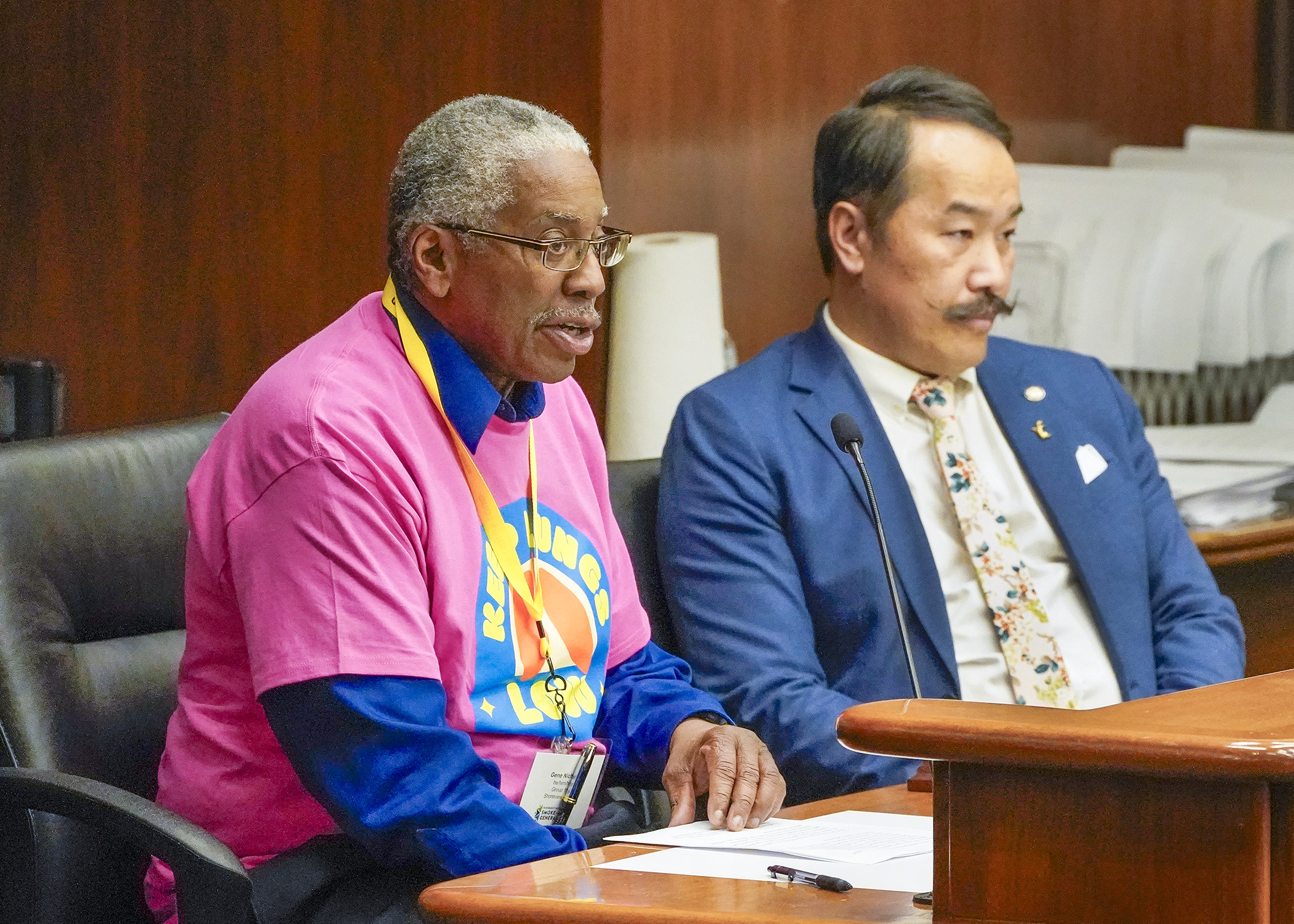Proposed ban on flavored tobacco products moves ahead in House

Reading from a letter his daughter wrote and holding aloft a framed photo of his three children was a way for Rep. Ethan Cha (DFL-Woodbury) to personalize an issue.
“Dad, I budgeted vaping before my food supply rations,” Cha told the House Health Finance and Policy Committee Tuesday. “I was never hungry because I was always vaping.”
That’s the fear of what can happen when someone gets hooked on a product that is bad for them.
Cha sponsors HF2177 that received committee approval and was referred to the House Commerce Finance and Policy Committee.
The bill would prohibit the sale of tobacco and tobacco-related devices, electronic delivery devices, nicotine or lobelia products, or flavored products that taste or smell different from tobacco. This includes products smelling or tasting like chocolate, cocoa, fruit, honey, menthol, mint, vanilla, wintergreen, or any candy, dessert, alcoholic beverage, herb, or spice. Lobeline has a chemical makeup like nicotine.
An entity found to have violated the ban could be fined $1,000 for the first infraction and $5,000 in subsequent instances.
Emily Anderson, director of policy at the Association for Non-Smokers Minnesota and Minnesotans for a Smoke-Free Generation, said smoking initiation rates have dropped in 29 Minnesota municipalities where flavored tobacco is banned.
Numerous individuals testified in favor of the bill. A man whose brother died after 54 years of smoking; a young person who consults with the American Lung Association; a pediatric pulmonologist; a Native American teenager who said the tobacco industry has infiltrated his community’s sacred ceremonies; a licensed drug and alcohol counselor who works with students and families to navigate addiction challenges; a University of Minnesota freshman stating that smoking sheesha is not a practice unique to any culture; a suburban police chief; and a reverend expressing concern about the Black community.
Speaking against the bill were several small business owners and citizens. They noted, for example, a ban would push the sale of flavored tobacco to neighboring states, create a black market, and remove an individual’s right to choose.
Opponents questioned why flavored vodka and THC edibles are not banned, and noted that e-cigarettes have helped hundreds of people in the state quit smoking. Two testifiers suggested that instead of a ban, flavored tobacco products could be sold at vape stores where customers must be at least 21.
Related Articles
Search Session Daily
Advanced Search OptionsPriority Dailies
Speaker Emerita Melissa Hortman, husband killed in attack
By HPIS Staff House Speaker Emerita Melissa Hortman (DFL-Brooklyn Park) and her husband, Mark, were fatally shot in their home early Saturday morning.
Gov. Tim Walz announced the news dur...
House Speaker Emerita Melissa Hortman (DFL-Brooklyn Park) and her husband, Mark, were fatally shot in their home early Saturday morning.
Gov. Tim Walz announced the news dur...
Lawmakers deliver budget bills to governor's desk in one-day special session
By Mike Cook About that talk of needing all 21 hours left in a legislative day to complete a special session?
House members were more than up to the challenge Monday. Beginning at 10 a.m...
About that talk of needing all 21 hours left in a legislative day to complete a special session?
House members were more than up to the challenge Monday. Beginning at 10 a.m...